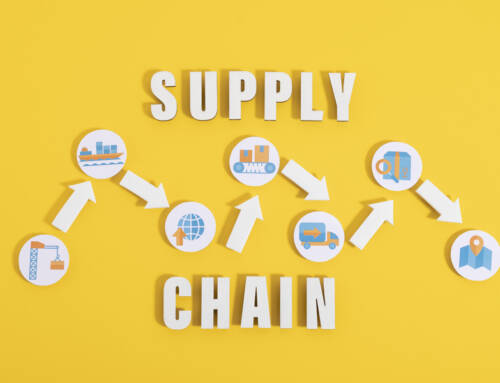Seizing the pole position in E-commerce rests on having a robust strategy to make the Customer Order to Delivery cycle as seamless as it can get. As customers put emphasis on speed and accuracy, and with the need to build shipshape supply chain, e-tailers strive to overcome the ordeals of excessive process times having a bearing on operational efficiency. And a robust supply chain can become the pivotal force to gain competitive edge.
But there is headwind taking the form of unpredictable demand, varying velocity of SKUs, and distribution challenges. There’s also the tailwind to infuse speed and accuracy into the supply chain – Robotic Process Automation (RPA) comes with promise of automating repetitive user actions and facilitating faster decisions, critical to enhance supply chain velocity and meet customer demands.
As data spills over, it becomes the cue for e-commerce to turn data into intelligence, make faster and intelligent decisions across supply chain. If RPA infuses the ‘doing fast and error-free’ spirit into ecommerce operations, Machine learning and AI brings the ‘thinking intelligently’ factor into complex decision-making involved in the operations.
Automating action
Supply chain involves action on the part of e-commerce player to fulfil customer needs. In the scenario where orders are managed, as when a customer places order, user action is prompted moving sequentially from:
Recording customer information – Payment processing – Email confirmation – Order allocation – Order delivery
This is a repeatable business process that can eat into ecommerce energy. In turn, when RPA is called into play to automate user-performed actions, an agile supply chain is prompted to facilitate seamless order fulfilment.
For e-tailers using multiple systems and tools to facilitate supply chain action, RPA helps integrate action across the systems, increase speed and promote quality of operations. Where communication is a significant component in the e-commerce supply chain – communication with customers, suppliers, transport agencies and manufacturers – RPA allows e-commerce players to do away with manual rigors by automating communication as when orders are processed, delayed or shipped.
Today, customers on a website want their orders delivered immediately, which only reiterates the need to promote a strong inventory management chain. This is achieved only when the inventory pulse is read constantly to ensure optimal stock positions are maintained to prevent order loss. Infusing process automation demanded by this action, through robots, e-commerce players can be alerted when stock levels hit a low as when compared to the thresholds that are set in advance.
And there is data flowing at every point of the supply chain. Tapping into data means paving way for an intelligent e-commerce supply chain. Data generated along this chain beginning from where products are sourced to the stage where products are delivered to the customer can lead to intelligence in automating higher frequency actions performed by ecommerce companies in fulfilling customer demands.
Infusing cognitive power
Going from automation to intelligent automation calls for identifying data patterns along the supply chain to augment decision-making. Take the case of RPA-powered inventory management and the bulk of data generated in this process. Using machine learning e-commerce players can forecast demand and supply chain needs and challenges – self-learning algorithms sensing real-time demand signals predict demands based on current conditions and personalize services.
A McKinsey study encompassing AI’s role in German Industrial sector has come up with the findings of how AI-enhanced supply chain results in improved forecasting accuracy – Forecasting errors are reduced by about 20% to 50% and lost sales owing to product unavailability get reduced by about 65% – key takeaways strengthening enterprise resolve of ensuring demand-supply sync.
With AI into the RPA-driven supply chain, capturing knowledge and learning from the past becomes a machine-led activity when used in complex areas like supply-demand sync, wherein the ML-powered intelligence serves to improve accuracy along supply chain. Data travelling at high speed is also captured using data mining entwined with the infusion of contextual data like weather, seasonal patterns and events to leverage demand intelligence and optimize product, stock and SKU levels.
As supply chain execution assumes greater importance than ever, intelligent automation spearheaded by RPA and AI help e-tailers accelerate process execution speed and build a smarter and predictive supply chain for intelligent decision-making.





